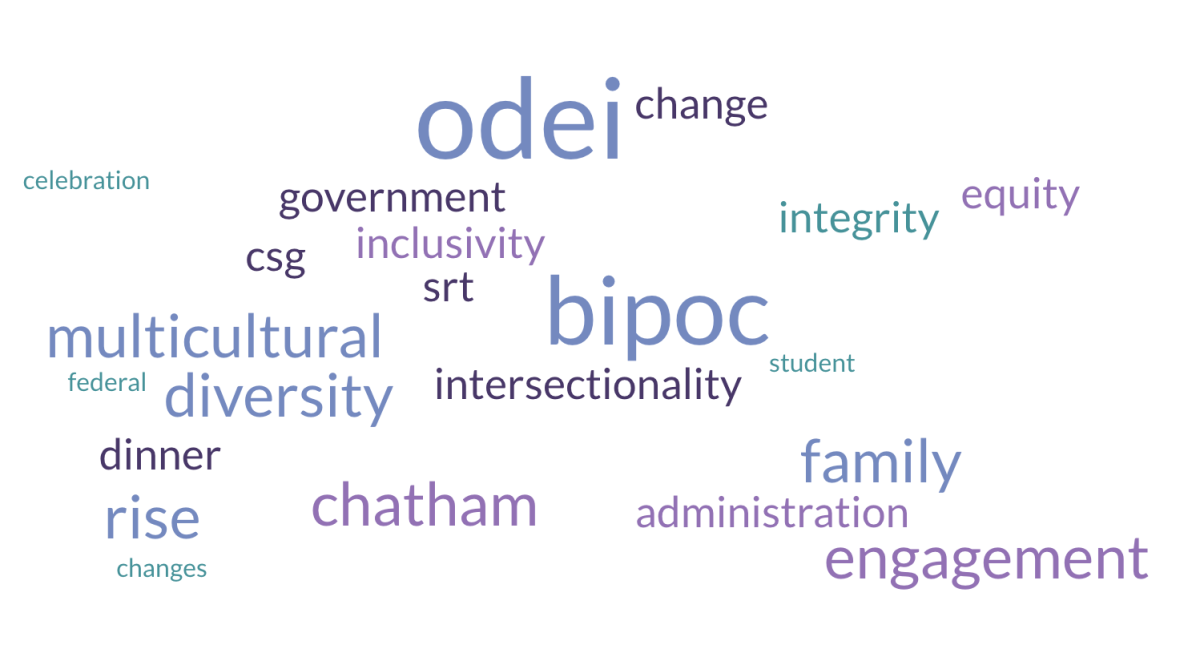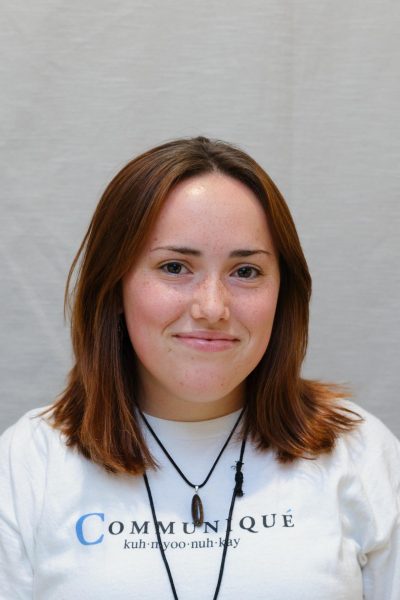Chatham University’s Strategic Response Team (SRT) recently announced changes to the titles and descriptions of some programs to comply with new federal diversity, equity and inclusion (DEI) policy.
The changes are to the titles of BIPOC Family Dinners and the Multicultural & Lavender Graduation, as well as the descriptions for the Karen Lake Scholarship and RISE Retreat. The graduation will now be called a “celebration,” and BIPOC Family Dinners will now be called Chatham Family Cookouts.
“Chatham’s aim is to make it clear, in response to the Dear Colleague Letter, that all our resources and programs are open to all students,” Chris Purcell, dean of students and co-chair of the SRT said in an email. “We want to keep these programs running, as they are essential to a thriving Chatham community, and we feel these adjustments are necessary based on the federal guidance received.”
The Dear Colleague letter was released Feb. 14 by the U.S. Department of Education’s Office for Civil Rights and stated that any educational institutions that receive federal funding would not be legally allowed to discriminate on the basis of race. The letter cited a U.S. Supreme Court case, Students for Fair Admissions v. Harvard (2023), which deemed affirmative action in colleges unconstitutional. In reference to the case, the letter stated, “treating students differently on the basis of race to achieve nebulous goals such as diversity, racial balancing, social justice or equity is illegal under controlling Supreme Court precedent.”
Many universities have since eliminated their DEI policies and departments, while others have refused to comply and called upon the federal government to rescind the letter. Purcell said in an email Chatham has “made the decision to respond narrowly to this guidance” and that it is not the University’s “philosophy or intent” to eliminate DEI programming. However, the changes were deemed necessary by the University and its legal counsel in order to avoid possible investigation from the federal government.
“If the SRT and the [Office of Diversity, Equity & Inclusion] continue to navigate these changes with nimbleness and a mission-forward approach, I foresee only minor changes to what ODEI offers students,” said Ali Hoefnagel, Communiqué coordinator of Student Engagement and Belonging for ODEI. “It’s ODEI’s job, in part, to ensure that Chatham is centering inclusive practices and psychological safety wherever and whenever we can. That won’t change.”
ODEI and the SRT collaborated with students to finalize the new names and descriptions for the programs. Dom Randall ‘27, executive president of Chatham Student Government (CSG), and Madison Stokes ‘26, vice president of DEI for CSG, were selected to represent student voices due to their positions in CSG, Randall’s previous work with the SRT and both serving as RISE mentors. The RISE retreat was previously described as a mentorship retreat for students of color.
“I think [Purcell and Hoefnagel] are putting a lot of thought into how we can find a compromise between the protocol that we have to follow from the executive order but also putting the students first,” Stokes said. “And I think they’re doing a great job of doing that.”
Randall and Stokes brought the information to the most recent BIPOC Family Dinner to get feedback from students, faculty and staff who will be most impacted by this change. According to Purcell, 26 regular attendees of the event voted on a potential new name.
“Everyone who usually attends the BIPOC dinners are fantastic people, always willing to help and work together,” Randall said. “Students have been very receptive. Upset, you know, obviously, but very receptive to it and willing to work.”
The group decided to change the BIPOC Family Dinner to the Chatham Family Cookout, a name Randall and Stokes felt reflected students of color on campus while maintaining inclusivity and complying with the law. The name was also the top choice among those who voted on the matter.
“Students of color or students that are not of color are still able to come to the dinner, like it’s always been,” Stokes said. “Now we just have to advertise that.”
Purcell, Hoefnagel, Randall and Stokes all reiterated that it’s important for Chatham to make decisions that are in the best interest of its students and align with its values.
Stokes added that students shouldn’t be afraid to ask questions or raise concerns to herself, Randall, Purcell and anyone else who might be able to be of assistance. Currently, Stokes’ position as vice president of DEI for CSG has not been impacted by federal policy changes.
“I think the main thing is making students of color feel welcome,” Stokes said. “Being there to encourage and support one another, I think, is a top priority right now.”
All correspondence from the SRT is available to view under the Federal Action Updates page on my.chatham.edu. The changes that have been made up to this point have been communicated to the Chatham community; the SRT, CSG and ODEI plan to keep the community updated when any new information emerges.
“Centering a culture of authentic belonging is the most important thing we can do for each other as a college community,” Hoefnagel said. “DEI programming brings ample opportunity for collective resistance and camaraderie, both being, in my opinion, at the core of Chatham’s legacy as a University. Our DEI programming, both from our departments and our dedicated student organizations, ensures that that doesn’t change, even in the face of seemingly insurmountable oppression.”




